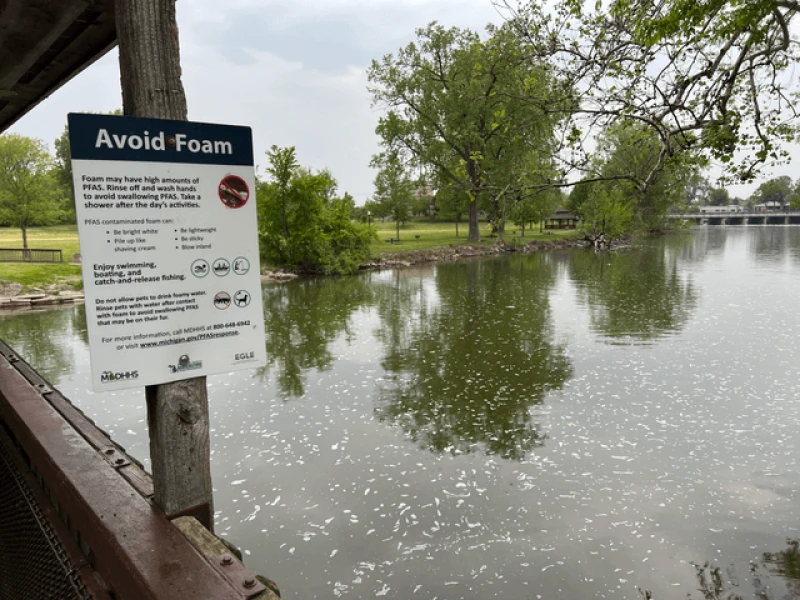Viewpoint: Why proposed PFAS chemical bans might do more harm than good
Viewpoint: Why proposed PFAS chemical bans might do more harm than good


3M has agreed to pay out $10.3 billion in settlement payments in response to lawsuits claiming that their per- and polyfluoroalkyl substances, or PFAS, contaminated drinking water. The funds are supposed to be used to filter PFAS from water supplies where it has been detected, and test for other sites of contamination.
The Federal Drug Administration has continuously approved both drugs and devices that contain PFAS. Most people don’t seem to know that the medical community is heavily reliant on products using PFAS for the production of medical implants like vascular grafts, stent grafts, surgical meshes, catheter tubes and wiring, as well as heart patches.
…
For semiconductors, manufacturers say PFAS are a vital part of the production process, primarily because of their chemical resistance and surface tension-lowering properties. This makes the chips durable and resistant to liquids and erosion. Efforts to ban PFAS outright from all consumer products, like has been suggested in Maine, may seriously jeopardize chip manufacturing and ultimately make the chip shortage much worse before it gets better.
This is where the PFAS debate gets geopolitical. You have states like Maine looking to ban PFAS, while the federal government is promoting domestic microchip production.
…
While protecting drinking water is a noble goal, and one worth pursuing, legislators must not sacrifice key medical necessities and semiconductor production in the process. Doing so would do far more harm than good.
This is an excerpt. Read the original post here

 | Videos | More... |

Video: Nuclear energy will destroy us? Global warming is an existential threat? Chemicals are massacring bees? Donate to the Green Industrial Complex!
 | Bees & Pollinators | More... |

GLP podcast: Science journalism is a mess. Here’s how to fix it

Mosquito massacre: Can we safely tackle malaria with a CRISPR gene drive?

Are we facing an ‘Insect Apocalypse’ caused by ‘intensive, industrial’ farming and agricultural chemicals? The media say yes; Science says ‘no’
 | Infographics | More... |

Infographic: Global regulatory and health research agencies on whether glyphosate causes cancer
 | GMO FAQs | More... |

Why is there controversy over GMO foods but not GMO drugs?

How are GMOs labeled around the world?

How does genetic engineering differ from conventional breeding?
 | GLP Profiles | More... |

Alex Jones: Right-wing conspiracy theorist stokes fear of GMOs, pesticides to sell ‘health supplements’




 Viewpoint — Fact checking MAHA mythmakers: How wellness influencers and RFK, Jr. undermine American science and health
Viewpoint — Fact checking MAHA mythmakers: How wellness influencers and RFK, Jr. undermine American science and health Viewpoint: Video — Big Solar is gobbling up productive agricultural land and hurting farmers yet providing little energy or sustainabilty gains
Viewpoint: Video — Big Solar is gobbling up productive agricultural land and hurting farmers yet providing little energy or sustainabilty gains Fighting deforestation with CO2: Biotechnology breakthrough creates sustainable palm oil alternative for cosmetics
Fighting deforestation with CO2: Biotechnology breakthrough creates sustainable palm oil alternative for cosmetics Trust issues: What happens when therapists use ChatGPT?
Trust issues: What happens when therapists use ChatGPT? California, Washington, Oregon forge immunization alliance to safeguard vaccine access against federal undermining
California, Washington, Oregon forge immunization alliance to safeguard vaccine access against federal undermining 30-year-old tomato line shows genetic resistance to devastating virus
30-year-old tomato line shows genetic resistance to devastating virus The free-range chicken dilemma: Better for birds, but with substantial costs
The free-range chicken dilemma: Better for birds, but with substantial costs ‘You have to treat the brain first’: Rethinking chronic pain with Sanjay Gupta
‘You have to treat the brain first’: Rethinking chronic pain with Sanjay Gupta
